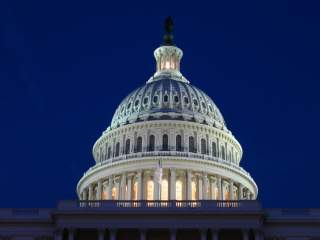The Republican Mission
The Republican Party’s dramatic success in the midterm elections provides it with both new opportunities and responsibilities in shaping U.S. foreign policy.
ONE PROBLEM for Republicans in Congress is that the public wants and the nation needs less gridlock and more bipartisanship in Washington. Foreign-policy bipartisanship has been a great American tradition, and America’s post–World War II foreign policy—including historic achievements like the Marshall Plan and NATO—would have been impossible without cooperation between the Truman administration and Senate Republicans. Unfortunately, Barack Obama is not Harry Truman in his approach to foreign policy. American national security was paramount for Truman, and he knew that he could not effectively conduct foreign policy without genuinely consulting Congress and even giving the Republicans a proprietary feeling toward U.S. conduct.
The contrast between Truman and Obama is stark. Republicans should be prepared to go the extra mile when the president is acting in the national interest, when he is ready to engage the Republican majority in Congress in genuine dialogue, or when stopping his initiatives could seriously damage vital or even important U.S. national interests. If Obama gets serious and does not demand a blank check from Congress, trade agreements—including both the Trans-Pacific Partnership and the Transatlantic Trade and Investment Partnership—could provide opportunities for cooperation. Conversely, if Obama endangers the United States through inattention, imperial arrogance, weakness or absence of vision, Republicans must not be timid.
Richard Burt, a former assistant secretary of state and ambassador to Germany, is the chairman of The National Interest’s Advisory Council. Dimitri K. Simes, The National Interest’s publisher, is president of the Center for the National Interest.
Image: Flickr/fmorgen/CC by-nc-sa 2.0

